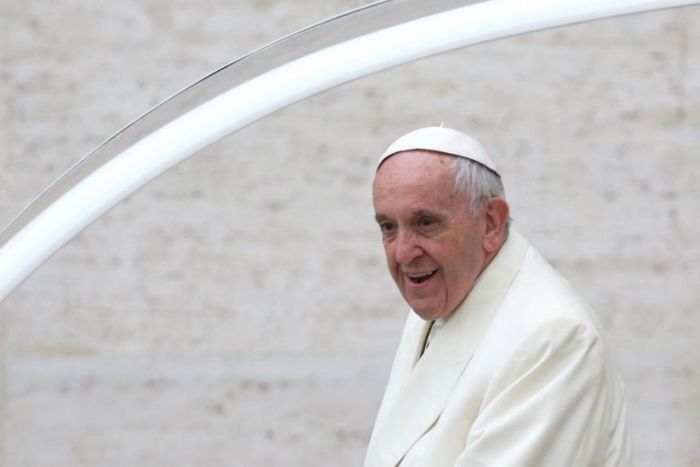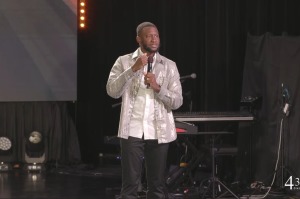Vatican reforms penal sanctions to clarify punishment for clergy sex abuse

The Vatican has unveiled significant changes to the Catholic Church’s Code of Canon Law designed to update and clarify actions that detail clear penal sanctions against members of the clergy and lay officials who engage in sexual abuse of children and adults.
Previously, church law dictated only that cases of sexual misconduct of children by clergy could merit "just penalties." The new changes explicitly criminalize sexual abuse of adults by clergy and also make it so laypeople holding church offices can also be sanctioned for similar offenses.
The changes come as the Catholic Church continues to deal with the fallout from its sex abuse scandal that first became public two decades ago, revealing that members of the clergy had behaved inappropriately with minors.
Pope Francis signed the apostolic constitution “Pascite Gregem Dei” on May 23, Pentecost Sunday, the text of which was released Tuesday.
In the document, Francis announced reforms to Book VI of the Catholic Church’s Code of Canon Law, which addresses penal sanctions in the Church.
"[T]he new text brings changes of different types to the law in force up to now, and sanctions some new penal types," an unofficial English translation of the document reads. "In a particular way, many of the novelties present in the text respond to the ever wider need in communities to see justice re-established and the order that the crime has broken."
Francis expressed hope that the changes will be "an instrument for the good of souls and that, when it's necessary, its prescriptions be put into practice by Pastors with justice and mercy, conscious that it is part of their ministry, as a duty of justice — eminent cardinal virtue — to impose punishments when the good of the faithful exacts it."
The changes will go into effect on Dec. 8.
The pontiff explained that his predecessor, Benedict XVI, gave a mandate to the Pontifical Council for the Interpretation of Legislative Texts to begin studying a revision of the penal language contained within the 1983 code.
The 1983 code refers to “criminal law promulgated by St. John Paul II" on January 25, 1983.
Francis contended that it was necessary to modify the language so that it could serve as a more agile correctivetool to be used promptly "to prevent greater evils and heal the wounds caused by human weakness."
Those assisting in drafting the new Book VI included “experts and pastors” as well as “numerous canonists and experts in criminal law from all over the world.”
"Many have been the damages occasioned in the past by the lack of understanding of the profound relation that exists in the Church between the exercise of charity and the carrying out of the sanctioning discipline, so long as the circumstances and justice require it," the translation reads.
"That way of thinking — experience teaches — entails the risk of temporizing with behaviour that is contrary to the discipline, for which the remedy cannot come only from exhortations or suggestions. This attitude often bears with it the risk that, with the passage of time, such ways of life crystalize making correction more difficult and aggravating in many cases the scandal and confusion among the faithful."
The existing Code of Canon Law states that “a cleric who persists with scandal in another external sin against the sixth commandment of the Decalogue is to be punished by a suspension.” Under the existing Code of Canon Law, such an action “committed by force or threats or publicly or with a minor below the age of sixteen years, is to be punished with just penalties, not excluding dismissal from the clerical state if the case so warrants.”
Title VI of Part II of Book VI has been amended to include a list of “offences against human life, dignity and liberty.” Currently, Title VI contains a shorter list of “delicts against human life and freedom,” such as murder, kidnapping and mutilation.
The revised Code of Canon Law calls on clerics to be punished if they engage in sexual activity with a minor, coerce a minor to expose themselves or possess or distribute pornographic images of minors.
Penalties for committing such offenses include orders to reside in a particular place or territory or prohibitions from living in a specific area or territory and revocations of privileges accompanying priesthood, such as the ability to hear confessions and wear vestments. In the most extreme circumstances, those who commit such offenses can be removed from the priesthood.
Title V of Part II of Book VI, which contains a list of “offences against special obligations,” has been updated to include additional offenses subject to punishment.
Most notably, “A cleric who voluntarily and unlawfully abandons the sacred ministry, for six months continuously, with the intention of withdrawing himself from the competent Church authority, is to be punished, according to the gravity of the offence … and in the more serious cases may be dismissed from the clerical state.”
Additionally, Pope Francis said that the revised Code of Canon Law aimed to create unity among the church body regarding penal sanctions. The revisions to Book VI of the Church’s Code of Canon Law come not long after a Gallup poll found that Americans’ trust in their religious leaders reached an all-time low.
Pope Francis has been accused of covering up the sex abuse. But the Vatican has denied wrongdoing on the part of the pontiff, labeling such claims as “monstrous” and “blasphemous.”
Ryan Foley is a reporter for The Christian Post. He can be reached at: ryan.foley@christianpost.com





























